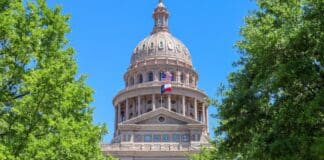A coalition of far-left groups in Florida has organized a “Rapid Response Protest” outside Tampa City Hall on Monday, June 9, in a show of solidarity with Los Angeles rioters opposing recent ICE operations. These demonstrations follow nationwide outrage from violent criminal arrests in California—including gang-related murder and sexual battery convictions.
Organized by Occupy Florida, 50501 Florida, Resistance Support, the Florida Valkryies, and Voices of Florida, the rally warns “NO MORE ICE RAIDS. NOT IN FLORIDA. NOT ANYWHERE.” Organizers assert their commitment to “nonviolence,” while simultaneously cautioning that protester and property safety cannot be guaranteed—a warning aimed at law enforcement responses.
Absent from event messaging is any reference to the criminal records of those arrested in Los Angeles. ICE executed the operation June 7, 2025, targeting individuals convicted of second‑degree murder, sexual battery, DUI, and assault with a deadly weapon.
One high-profile arrest involves 49‑year‑old Cuong Chanh Phan of Vietnam. Phan was apprehended during the LA operation and is a documented second‑degree murderer linked to a 1994 gang shooting at a high‑school graduation party, which left two teenagers dead and seven more wounded ⟂cite⟂turn0search2⟂turn0search1⟂turn0search18⟂.
Other detainees in the ICE sweep include Mexican nationals with convictions for battery, DUI, grand-theft larceny, assault with a deadly weapon causing serious bodily harm, possession of unlawful paraphernalia, and sexual battery ⟂cite⟂turn0search1⟂turn0search9⟂.
Tampa’s protest follows the mobilization of Tampa Bay Students for a Democratic Society and Resistance Support Collective. Ashe, a Resistance Support member, told local media the goal is raising awareness and fostering community action against ICE operations in Florida.
This alignment with Los Angeles rioters who burned the U.S. flag, waved the Mexican flag, attacked law enforcement, looted, and destroyed police vehicles signals a broader ideological shift. According to organziers, these actions underscore opposition to ICE’s arrest of convicted violent offenders—a sentiment that critics argue overlooks grave threats to public safety.
Conservative observers note the omission of detained criminals’ violent records appears intentional, aiming to frame ICE actions as unjust persecution rather than public safety enforcement. This strategic narrative choice may obscure the real risks posed by the individuals ICE targeted





